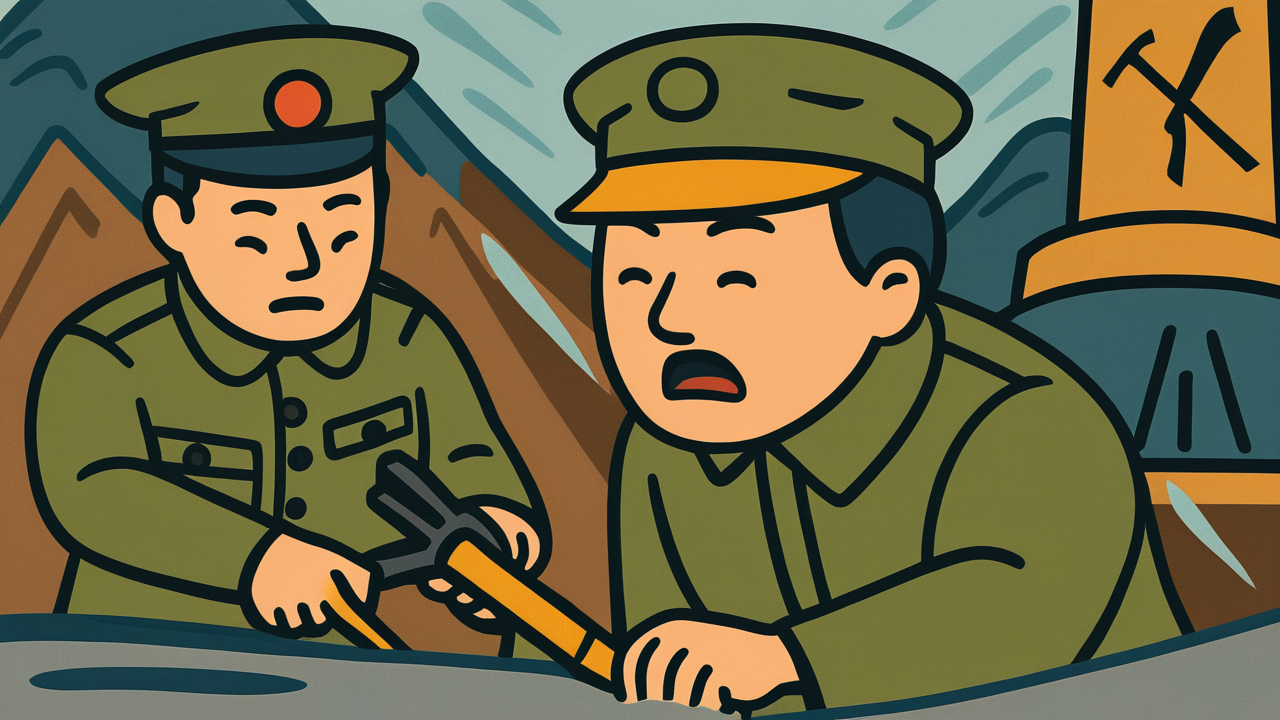How to Read “泣いて馬謖を斬る”
naite bashoku wo kiru
Meaning of “泣いて馬謖を斬る”
This proverb means suppressing personal feelings and emotions to make strict judgments for the sake of the organization or society as a whole.
Specifically, it is used in situations where those in leadership positions must impose harsh punishments while prioritizing rules and justice, even when they feel affection or closeness toward their subordinates or family members. The reason for using this expression is to emphasize how painful and difficult such judgments are. It is not simply a cold-hearted punishment, but a decision made with heartbreaking anguish, which gives weight to these words.
Even in modern times, it is used in scenes that represent the essence of leadership, such as when a manager fires an excellent employee who violated rules, or when a coach benches a talented player for disrupting team harmony. What’s important is that it’s not a judgment based on personal likes or dislikes, but for a greater purpose or justice.
Origin and Etymology
This proverb originates from a famous historical account recorded in the Chinese historical text “Records of the Three Kingdoms.” It is based on the incident where Zhuge Liang (Zhuge Kongming), the chancellor of Shu during the Three Kingdoms period, executed his beloved disciple Ma Su according to military law.
Ma Su was a subordinate whom Zhuge Liang deeply trusted. However, during the Battle of Jieting, he disobeyed Zhuge Liang’s strategic instructions and independently positioned his forces on a mountaintop, resulting in a crushing defeat when the Wei army cut off their water supply. This defeat dealt a major blow to the entire Shu army’s strategy.
Zhuge Liang was deeply tormented between his personal affection for Ma Su and his responsibility to maintain military discipline. However, military law was absolute, and allowing personal feelings to interfere would disrupt the control of the entire army. Therefore, Zhuge Liang, while shedding tears, executed his beloved disciple by beheading.
This historical account was transmitted to Japan and became established as a proverb meaning “to cast aside personal feelings and make fair judgments.” In China, it is expressed as “揮涙斬馬謖” and continues to be passed down as a historical account symbolizing the severity of leadership.
Usage Examples
- The department manager, upon learning of misconduct by a subordinate he had cherished for many years, decided on punishment with the feeling of crying cut horse Su
- The coach approached the star player’s behavioral problems with the resolve of crying cut horse Su
Modern Interpretation
In modern society, the meaning of this proverb has become more complex. In the information age, organizational transparency is demanded, and leaders’ judgments are instantly disseminated worldwide. Therefore, strict judgments like “crying cut horse Su” have become even more important than before.
In corporate compliance issues, management not concealing internal misconduct and appropriately punishing it despite the pain has become the only way to protect organizational trust. Modern leaders are constantly faced with such judgments, including responses to employees who caused social media controversies and punishment of executives who engaged in power harassment.
On the other hand, in modern times, with the rise of diversity and human rights awareness, options such as re-education and job transfers are valued more than uniform “cutting” judgments. Additionally, humane judgments that consider individual circumstances and backgrounds, not just organizational logic, are now required.
With technological advancement, an era has arrived where AI assists in personnel decisions. However, final decisions still involve human emotions and responsibility. Balancing objective judgments based on data with human warmth may be a new challenge required of modern leaders.
When AI Hears This
Zhuge Liang’s execution of Ma Su was likely not an emotionally anguished decision, but rather an extremely calculated political move. This is because Zhuge Liang, serving as regent supporting the young Liu Shan after Liu Bei’s death, constantly faced questions about his legitimacy and an unstable power base.
When Ma Su disobeyed orders and suffered a crushing defeat at the Battle of Jieting, Zhuge Liang wasn’t simply dealing with a military failure. If he allowed subordinates to act independently, it would give political enemies ammunition to attack his “lack of control,” and risk other generals beginning to disregard orders as well. Particularly, veteran generals like Wei Yan already harbored doubts about Zhuge Liang’s authority, and lenient punishment here could have led to complete collapse of discipline.
What’s fascinating is that simultaneously with Ma Su’s execution, Zhuge Liang demoted himself from “Chancellor” to “General of the Right.” This wasn’t a noble tale of taking responsibility, but rather a shrewd political performance designed to project an image of “fair and selfless leadership” while silencing criticism of the execution. In reality, the demotion was purely formal—he lost no actual power.
Modern organizational psychology shows that when leaders combine harsh punishment with self-sacrifice, they can strengthen group cohesion and submission to authority. Zhuge Liang’s “tears” may have been a calculated performance, transforming a cold-blooded power maintenance strategy into a humanized narrative.
Lessons for Today
What this proverb teaches modern people is what true leadership means. To become a leader means having the resolve to choose the right path even if it means hurting those you love.
In modern society, everyone has occasions to demonstrate leadership in some form. As parents in the family, as team members in the workplace, as citizens in the community. At such times, whether to prioritize immediate human relationships or choose long-term benefits and justice. Facing this choice is never uncommon.
What’s important is the state of mind when making harsh judgments. Rather than completely eliminating emotions, fulfilling responsibility while feeling pain. This “while crying” aspect contains the essence of human-like leadership.
You too may encounter moments in your life when you must do what is right even if it disappoints someone. At such times, remember Zhuge Liang’s tears. Feeling pain is not weakness, but proof that you have a warm, human heart.



Comments